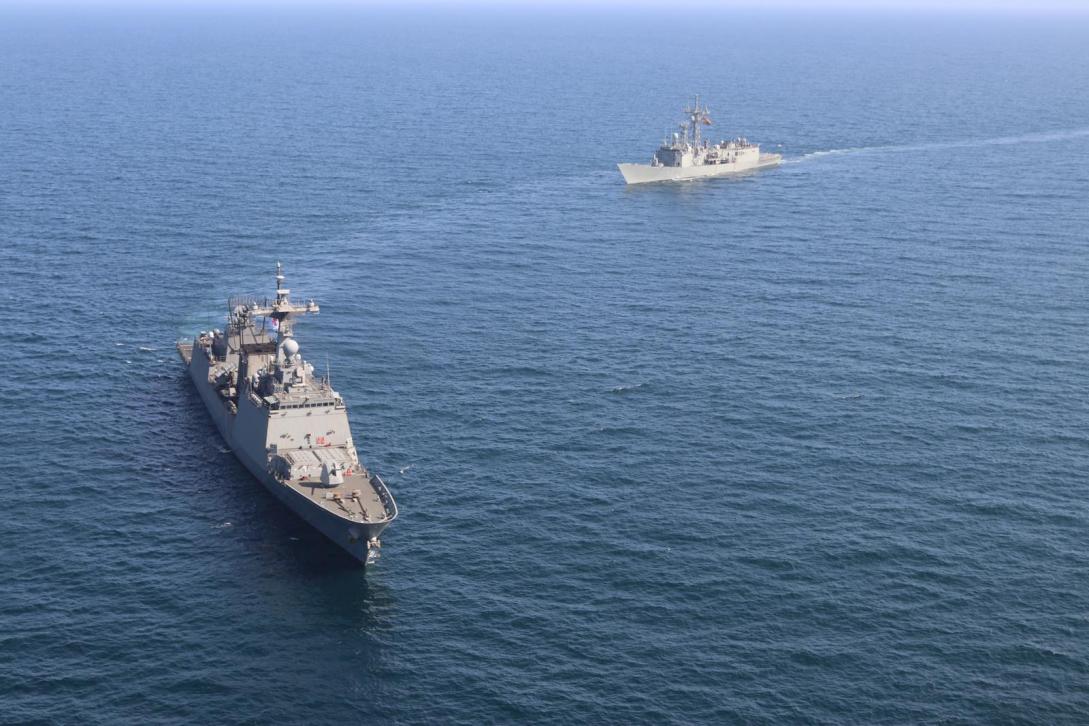Operation ATALANTA conducts maritime cooperation exercises in Indo-Pacific

Over the last week, Operation EUNAVFOR ATALANTA has conducted several maritime cooperation exercises with navies from partner countries operating in the Gulf of Aden.
On 16 October, a joint naval exercise that included a series of interactions at sea took place between Operation ATALANTA’s flagship, Spanish frigate Victoria, and the Japan Maritime Self-Defence Force, frigate Yugiri. Two days later, on 18 October, similar activities were organised with a South-Korean naval asset (destroyer Chungmugong Yi Sun-sin). In each case, the Omani Maritime Security Centre was involved in activities to exchange information and coordinate actions. Lastly, on 19 October, ATALANTA’s flagship Victoria engaged in a naval exercise with patrol boat Al Mabrukah of the Royal Omani Navy.
Joint exercises at sea with the participation of Operation ATALANTA are becoming more frequent in this part of the Indian Ocean. In the last months, ATALANTA conducted maritime coordination activities with Japan in October 2020, in February 2021, in May 2021 (with the participation of Djibouti) and in September 2021. ATALANTA has also undertaken maritime exercises with other Asian partners, including a Passing Exercise with the Pakistani navy in June 2021 and a more complex, 2-day exercise with the Indian navy in the same month.
Increasing the number of cooperation activities with partners in the region is a key priority for ATALANTA, since it contributes to reinforce the EU’s naval presence and diplomacy in the region and to enhance the efficiency of maritime security operations, both ashore and offshore, to guarantee free and open sea-lanes for trade and communication. Furthermore, these activities contribute to develop an agenda of mutual interest and to promote common working procedures that build confidence between stakeholders and facilitate the identification of more advanced cooperation opportunities for the future.
The EU shares similar views on maritime security issues with these like-minded countries, such as the promotion of freedom of navigation, the advocacy for an international rules-based maritime order and the support to multilateral responses to security threats in the maritime domain.
In addition, the recent adoption of the EU’s Strategy for Cooperation in the Indo-Pacific calls for increased cooperation activities with partners in this part of the world. The region is of strategic importance to the EU due to the growing interdependence of global economies and the importance of maritime supply chains in global growth and prosperity. With this strategy, the EU will increase its engagement in the Indo-Pacific, including in the field of security, and contribute to peace and stability in the region. The strategy also lays the foundations of a strong relationship with like-minded partners in the area of maritime security, where the EU will contribute to the safety of maritime routes with more joint naval activities and capacity-building initiatives, and will seek to enhance its naval presence in the Indo-Pacific.




